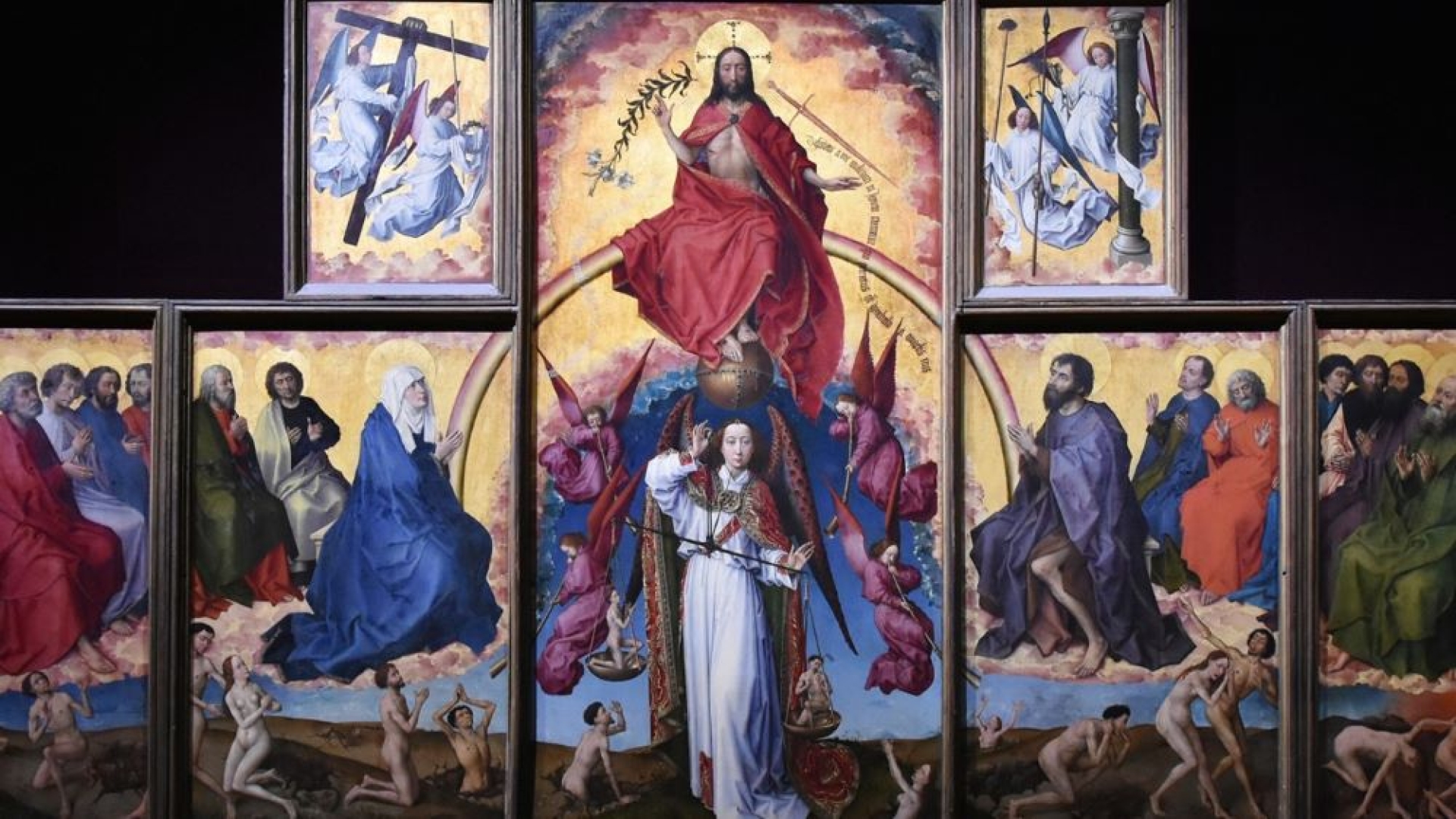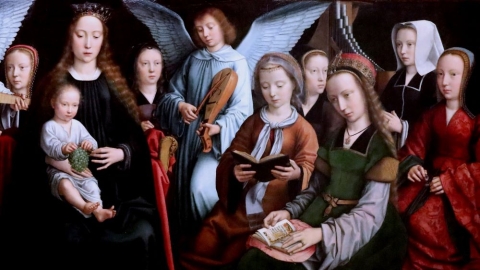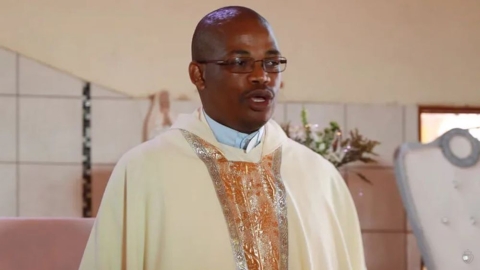The Holiness of the Church (9): The Virtue of Justice

The Last Judgment by Rogier van der Weyden
In biblical parlance, the term “just” is basically equivalent to “holy” as we understand it today. Justice, a virtue that renders to everyone his due, is considered the basis of holiness, the essential element for the development of a relationship with God. If one does not start by giving back what is due, it is impossible to go further and fulfill the precepts of charity.
We will try to see how the saints “rendered their due” in different areas: to the community, to individuals, as responsible for others. Later, we will also look at virtues that share certain characteristics of justice, such as religion or piety, and are potentially part of it.
General Justice
As a political animal, man has duties above all towards the society of which he is a part. He must pay his debt to the Church and to the temporal society, according to what the laws require of him. This is why general justice is also called legal justice.
Every saint, to be such, is also a good citizen or a good subject – as far as possible and without transgressing superior laws – a good prince or a good soldier. The martyrs of the Theban Legion or St. Sebastian, all Roman soldiers, fulfilled their duty as legionaries in everything that was not contrary to divine law.
Holy Christian sovereigns, such as St. Louis IX, wisely administered justice to their subjects, dealing with them personally. The holy popes and bishops have elaborated and applied canonical laws based on the common good and the tradition of the Fathers, equipping themselves with instruments to make them effective. We could say that these acts had governing prudence as their efficient cause and general justice as their final cause.
The inflexibility of the saints on what, in justice, should be given not to themselves but to the Church, led many of them to martyrdom: thus St. Thomas Beckett, Archbishop of Canterbury, killed by the king because of his will to hold what was due to the Church, not by concession of the State, but as a strict right given by God.
A similar case was that of St. Stanislaus of Krakow: he did not hesitate to raise a dead person who could testify before the civil court that the Church had legitimately acquired property and that, consequently, no one could seize it. He too was martyred for this firmness.
Commutative Justice
Commutative justice, no longer general but particular, concerns the relations of an individual with another individual: it is the will to render to each what is strictly due to him, as in buying and selling. For St. Thomas, it is about justice in the strictest sense.
The heroism of the saints consists in not being satisfied with this justice, according to the words of the Gospel: “For I tell you, that unless your justice abound more than that of the scribes and Pharisees, you shall not enter into the kingdom of heaven” (Mt. 5:20). Evangelical holiness is not just about avoiding injustice, but about eradicating its causes, eliminating the will to possess or equivocate.
This is how the saints kept the Gospel: not only did they not claim more than their due, but they also forfeited it. “And to him that striketh thee on the one cheek, offer also the other. And him that taketh away from thee thy cloak, forbid not to take thy coat also. Give to every one that asketh thee, and of him that taketh away thy goods, ask them not again” (Lk. 6:29-30).
The saint practices justice in its most radical form by renouncing payment, remembering that God has forgiven him his debts and that he must render to his neighbor a treatment similar to that which he has received. Thus, he is ready to accept injustice: St. Dominic Savio, still a child, accepted an unjust reprimand because of a false accusation by his comrades. Humiliation allowed him to root out of himself one of the seeds of injustice, the desire to appear better than others.
St. John of Kenty was robbed by thieves: not only did he give them everything they asked for, but remembering that he had some hidden coins, he chased the thieves to give the coins to them. The thieves, edified by his holiness, returned everything to him. Not only does the saint not take what belongs to others, but, renouncing what belongs to him, he destroys the concupiscence of goods which is at the origin of many injustices.
The insistence of the saints on combating usury, which demands from the debtor more than what is due to him, is symptomatic: a Christian society must certainly see to it that one renders what one owes to the creditor, but it cannot allow the latter to demand more than is due. This would be to deny the Our Father. It was the great battle of the Franciscan saints, disciples of St. Bernardin and St. John of Capestrano, of Blessed Michel Carcano, of Marc de Montegallo, and of Bernardin de Feltre.
Distributive and Retributive Justice
This part of the virtue of justice concerns people in positions of authority, insofar as it pushes them to distribute honors and offices according to the merits of each, and therefore not on an absolutely equal footing (as in the case of commutative justice), without making any distinction between persons. Retributive justice, which requites evils with just punishments, is related to it.
If the individual can and must, as we have seen, accept injustice, this is not the case for those who exercise community responsibilities: indeed, to accept evil or not to promote good would be tantamount to failing his subjects or citizens and the common good, and would provoke social jealousies and private vendettas.
The great pontiffs and bishops were therefore extremely careful to promote the deserving and to punish the guilty. St. Pius V showed firmness against heretical practices and fought the inclination to place relations or members of powerful families in positions of responsibility, regardless of their merit.
St. Pius X showed the same firmness with regard to modernism, choosing good collaborators and punishing the partisans of heresy.
St. Charles Borromeo took care to remove from his diocese the unworthy, without consideration of persons, with a view to the common good; at the same time, he surrounded himself with worthy clerics, whom he did not hesitate to place in positions of responsibility in the diocese, despite their origin or their young age.
From there arose many bishops of the Milanese ecclesiastical province who distinguished themselves by their zeal in the implementation of the Tridentine reforms.
Related links
- The Holiness of the Church (8): The Virtue of Prudence
- The Holiness of the Church (5): The Virtue of Hope
- The Holiness of the Church (7): The Virtue of Charity-2
- The Holiness of the Church (6): The Virtue of Charity-1
- The Holiness of the Church (3): The Virtue of Faith-1
- The Holiness of the Church (4): The Virtue of Faith-2
- The Holiness of the Church (1): Dogma
- The Holiness of the Church (2): The Apologetic Mark
(Source : Somme théologique - FSSPX.Actualités)
Illustration : Rogier van der Weyden, Domaine public, via Wikimedia Commons





